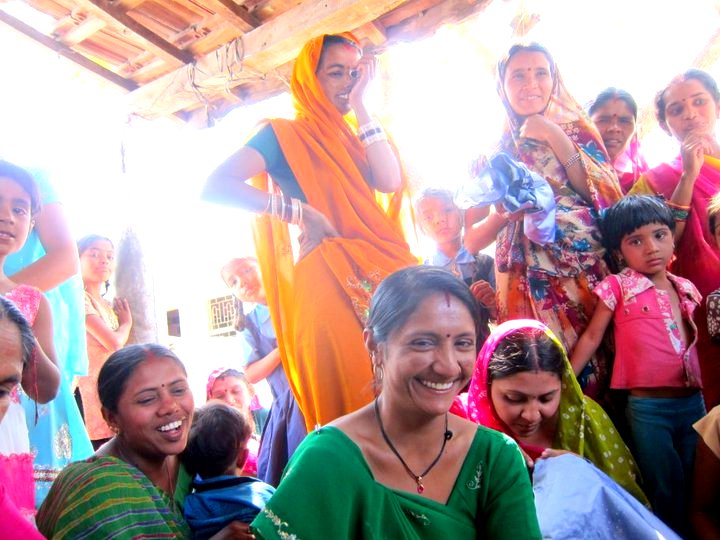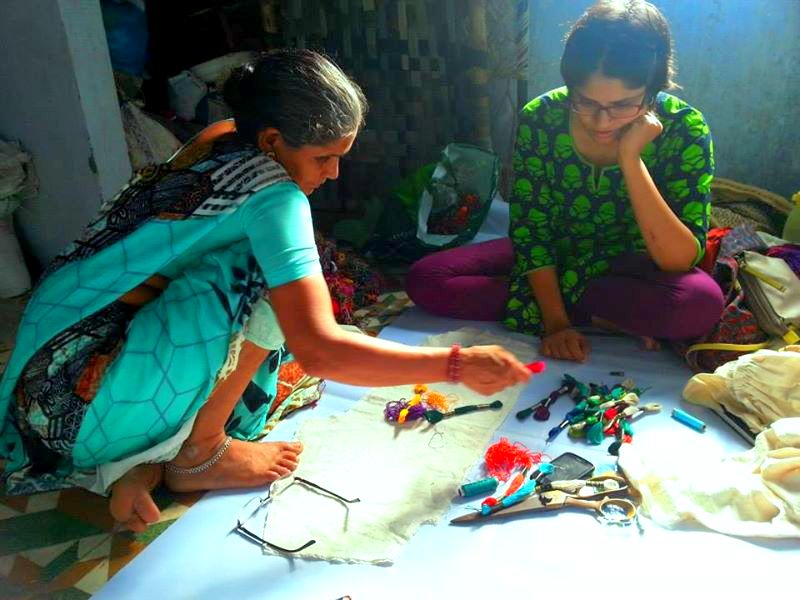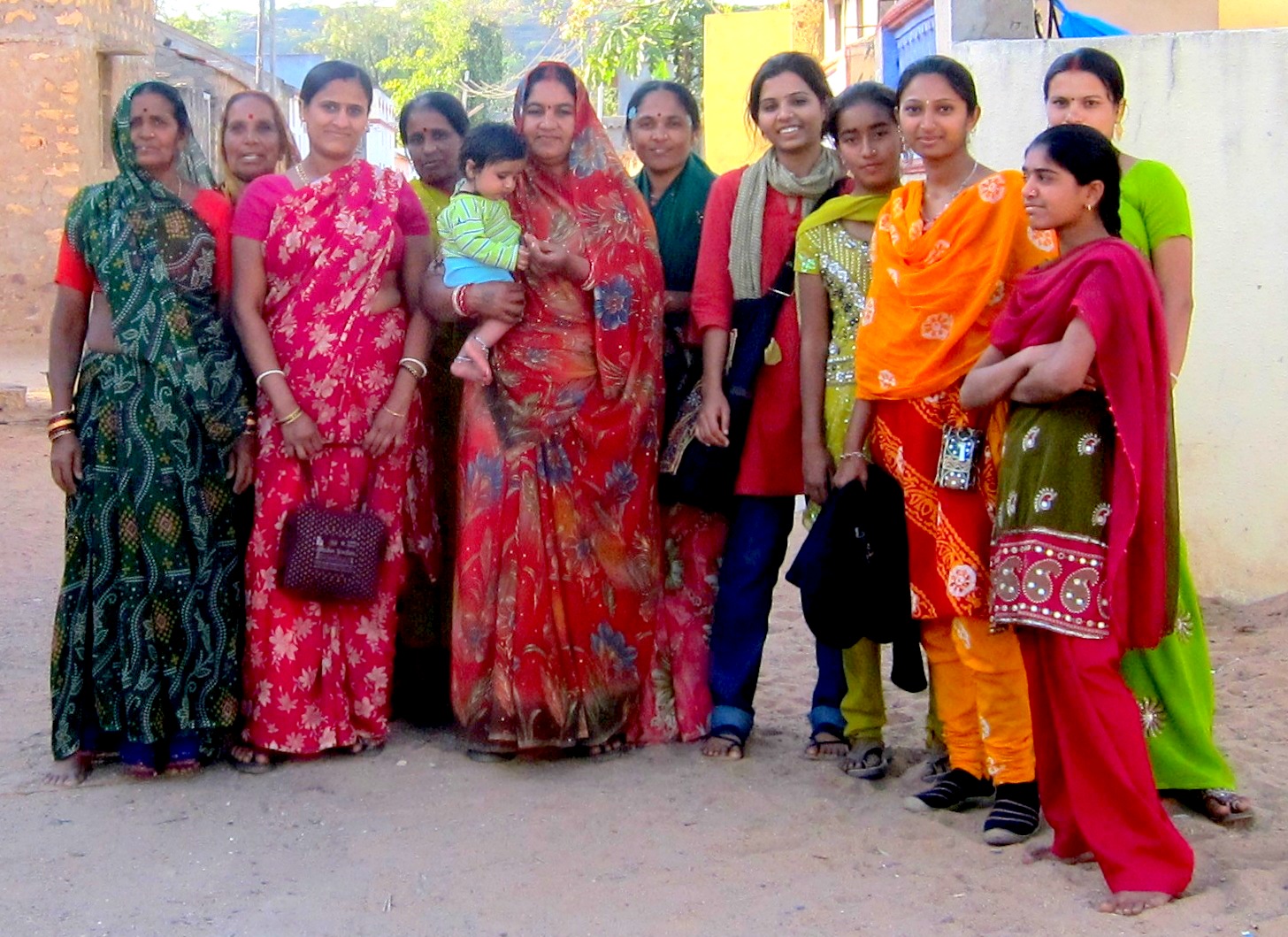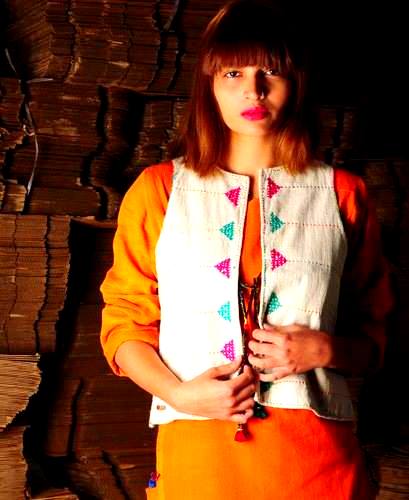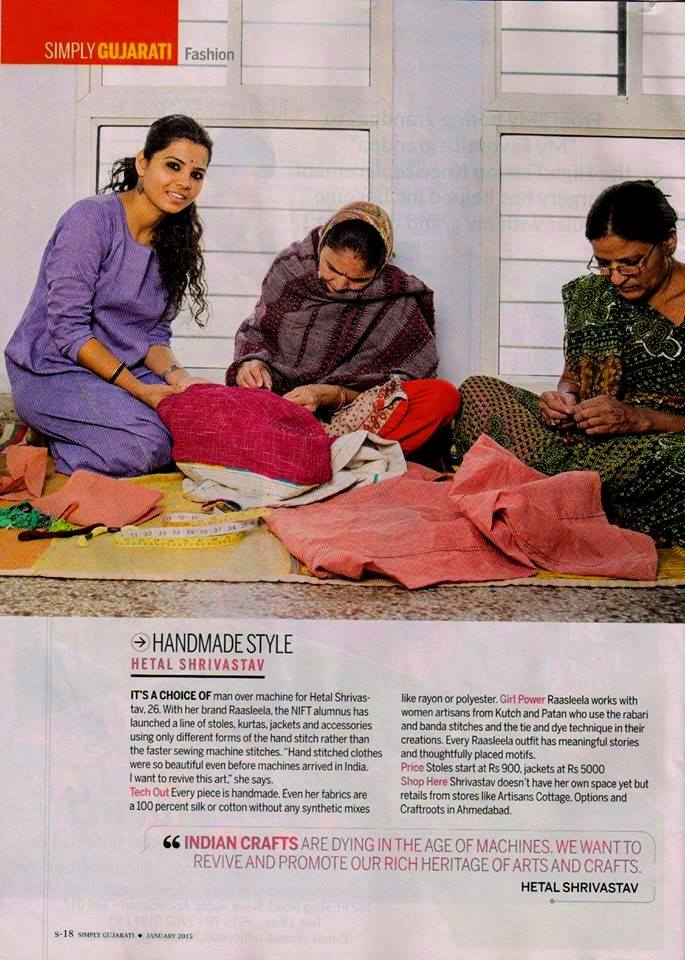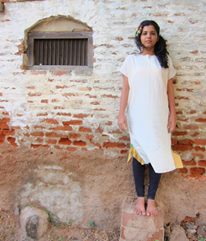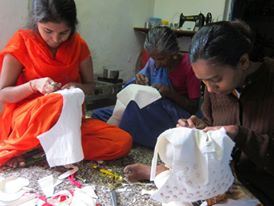eChai with Hetal Shrivastav, Founder, RaasLeela
Our today's guest for eChai with an Entrepreneur is Hetal Shrivastav, Founder, RaasLeela. Hetal graduated as a fashion designer from NIFT, Gandhinagar in 2009. She has more than three years of working experience handling designing, conducting training progrrams and production workshops with women artisans in rural areas of Gujarat. She was associated with Alba Collective, an USA based NGO, as a designer and project manager. In RaasLeela she handles the business and production line.
Here is the insightful and candid conversation with Hetal. Join the conversation at eChai.in to ask any specific questions to Hetal.
Early Years : When did it first strike you to begin this venture and why? Your Eureka Moment (the moment you decided to be an entrepreneur).
When you have emotional attachments with the work you do, it becomes difficult to compromise. I have love for hand crafts, artisans, their thoughtful stories behind motifs, color, placements and how the whole life or artisans’ community is narrated by the craft.
About myself, I am a NIFT graduate, worked for an export house for eight months. I then joined a USA based NGO Alba Collective, who had a tie up with Sewa (Self employed women’s association). I worked as a head designer and production manager for three years. Doing a job was, no doubt a good learning experience (without which I guess I would not be running my venture this effectively in such short time) but it was not satisfying me. I quite the job and started with some personal savings.
Business Venture : What is your business model and what problems does it solve? What are market opportunities? How is it different from your competitors? How do you generate revenues ?
RaasLeela makes fully handcrafted garments and accessories. Each product is stitched and embellished by hand and no machines are used. The prime objective behind Handstitched products is to compensate the handcraft artisans by paying maximum part of the product cost as wages.
We provide freedom with the guidelines to the artisans to use their own design sense. This allows them to practice their design skills the way they use to do traditionally when they were making products for their own use. We ensure finest quality but accept the perfectly imperfect characteristic of hand work unlike the mass production industry where each piece is expected to be same. Here we take pride in valuing every artisan’s unique embroidery style. The concept in whole ensures reduction in carbon footprints in current scenario which is utmost critical.
RaasLeela caters B2B business. We supply to E-commerce and multi designer stores across India.
Sales : How did you make your first sale and how much time it took you from starting up to closing the first sale ? How long is your sales cycle ?
The first sale was a pre order of a Saree and a Pichvai (a temple decoration) from a relative. She didn’t like any of it but, as she was a very religious person she kept the Pichvai and returned the saree. So we could make very less profit. It took 28 days for us to finish that order and we sold it for Rs. 8000.
Normally, our production cycle is for 90 days for a collection and the sales cycle is for 2.5 months.
Company Culture : What kind of culture exists in your organization? How did you establish this tone and why did you institute this particular type of culture?
We work with home based women artisans. We have four clusters in the villages of Gujarat and 11 people at the workshop for sampling, sourcing, quality checking and finishing. We are also working with a group of migrants who have come to Ahmedabad either because their children are in the school here or because their family shifted seeking livelihood.
Also as we are working with unorganized sector, we need to be a bit flexible with production schedule. Our schedule adjusts to the personal commitments of the artisans eg. Attending guests at their home, a family member falling sick, attending family functions etc.. This is another challenge and to overcome, we plan our production schedule in advance keeping all the adjustment delays in mind.
Partnerships : What are your views about finding the right Co-Founder ? How did you find your business partner? According to you who is the ideal business partner?
I was lucky to have a partner who was a colleague and a friend of mine when I started the business. The best part in our partnership was that we had our own different skills which made us completely dependent on each other. This helped us take decisions swiftly and appropriately. Inevitably we had to separate due to her personal commitments.
I would say choose the partner who has those skills which you do not have or who compensates the need of business.
Hiring - How did you hire your first employee ? And in general what's your hiring policy ? How important have good employees been to your success?
So far we have not chosen our artisans. Whoever comes to us for work we take them in, as employing needy home makers has always been our motive. It is challenging as not all the women are trained artisan. In such case, we provide training according to her capacity and design a special product for her, which she can produce and try out variations on her own as per her ability. This product is given her name as a code, which makes her emotionally attached with her work. We also share market feedback and sales report of her product so that she knows the market requirement. This gives them experience of entrepreneurship. We believe it is important that artisans should enjoy doing the craft rather than taking it only as a means of earning.
Learning : How did you handle your disappointments and failures?
There has been bunch of failures so far. The biggest one was to start a store cum workshop in Ahmedabad investing all we had and close it down in seven months. Starting a store was abrupt decision and had no clue of the cost of running and maintaining the store. Also the location of the store was not appropriate. Shutting it down was discouraging but very much a vice decision.
Vision: What's your vision for your venture. What do you want to accomplish in your life ? What are your future aspirations?
I wish to create the demand of hand crafted products and make the craft practice a fruitful and joy full job so that the children of the artisans’ community can be motivated to continue their traditional skills, which has come as heritage from mother’s side. They should start as apprentice and excel as master artisan.
My goal is to have RaasLeela team to cross 100 numbers of artisans working with us on regular basis.
Work-Life Balance : How do you find a balance between work family and social life?
I have a very supportive family and it makes my entrepreneur journey very easy. Sharing work life with husband helps a lot with maintaining the balance of family and work. Both are important factor of life so none can be compromised. Being married and an entrepreneur, it is very important to set priority and decide what is more important and when.
Risks : Which was the boldest decision you ever made to have this venture work?
So far I think I am not needed to make any bold decision. Things have fallen in place though ups and downs have been always there. What inspires me and keeps me going is a fact that RaasLeela is co rise business for artisans’ community and me.
Here are some of the amazing photos from her entrepreneurial journey.
